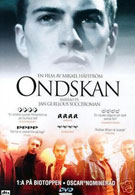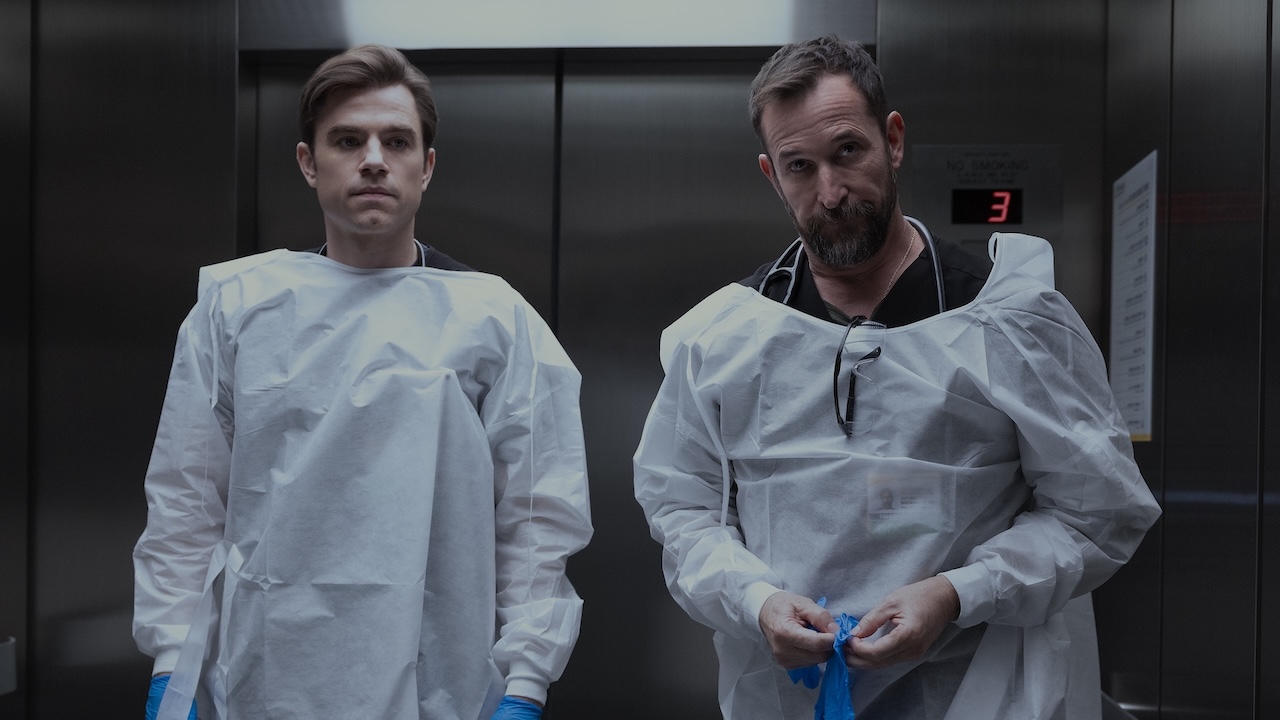Finally arriving in American theatres, Sweden’s best foreign film nominee in 2004 Ondskan (Evil) is well worth the wait. One might expect this to have some horror or supernatural overtones with the title, but you’ll find no devil worshipers or otherworldly events here. What you will find is something far more disturbing. Evil depicts man’s inhumanity to man in the worst of ways.
Mikeal Hafstrom directs the film with a certain heavy handedness that will turn off some viewers. His depiction of the cruelty that students at an exclusive prep school inflict on each other is stunning and may take you back to your own tortured years of adolescence. Hafstrom does an excellent job of showing what happens when a bully becomes the prey.
Set in 1950s Sweden, Erik (Andreas Wilson) is expelled from his school for fighting. Erik’s mother manages to have him sent to a prestigious boarding school in order to escape vicious abuse from his father. From the frying pan to the fire, Erik soon learns that prestigious doesn’t mean better or safe. In the new school, the older students routinely physically and mentally abuse the younger students while the faculty turns a blind eye.
Trying to mend his old ways, Erik becomes nonviolent. Sadly, this is the wrong time and place for that, as he becomes the latest victim of the sadistic leader of the senior students, Otto (Gustaf Skarsgard). At first Erik is able to rise above the turmoil, but when his meek roommate is attacked, Erik unleashes a can of whoop-ass.
After making Evil, Hafstrom was tapped to direct last years mistake Derailed. It’s understandable after seeing this why he was selected. Hafstrom captures the pains of growing up and finding your place in the world beautifully. Erik goes from oppressor to oppressed with surprising believability. The role of victim and bully is clearly defined and only by rising up against the oppressor can Erik have any kind of chance to survive. The film is at times incredibly powerful. Yet, with a two hour run time, towards the end Evil is incredibly bleak and it becomes about as subtle as a sledgehammer, which hurts its effectiveness.
Some will hate the way Erik eventually has to resort back to his old ways in order to make it in his new world, but sadly that’s the way life works. Not every problem can be overcome by civil disobedience or witty one-liners. Hafstrom has managed to combine the best of Fight Club with the best of Dead Poet’s Society. It is depressing at times but Hafstrom gives enough hope before it’s over that he allows for an upbeat ending.
Your Daily Blend of Entertainment News

